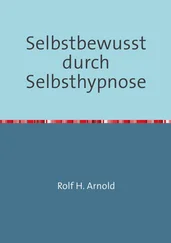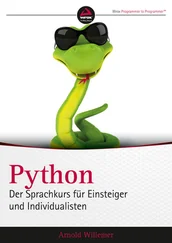Arnold Zable - Cafe Scheherazade
Здесь есть возможность читать онлайн «Arnold Zable - Cafe Scheherazade» весь текст электронной книги совершенно бесплатно (целиком полную версию без сокращений). В некоторых случаях можно слушать аудио, скачать через торрент в формате fb2 и присутствует краткое содержание. Город: Melbourne, Год выпуска: 2001, Издательство: Text Publishing Company, Жанр: Проза, на английском языке. Описание произведения, (предисловие) а так же отзывы посетителей доступны на портале библиотеки ЛибКат.
- Название:Cafe Scheherazade
- Автор:
- Издательство:Text Publishing Company
- Жанр:
- Год:2001
- Город:Melbourne
- ISBN:нет данных
- Рейтинг книги:4 / 5. Голосов: 1
-
Избранное:Добавить в избранное
- Отзывы:
-
Ваша оценка:
- 80
- 1
- 2
- 3
- 4
- 5
Cafe Scheherazade: краткое содержание, описание и аннотация
Предлагаем к чтению аннотацию, описание, краткое содержание или предисловие (зависит от того, что написал сам автор книги «Cafe Scheherazade»). Если вы не нашли необходимую информацию о книге — напишите в комментариях, мы постараемся отыскать её.
Cafe Scheherazade — читать онлайн бесплатно полную книгу (весь текст) целиком
Ниже представлен текст книги, разбитый по страницам. Система сохранения места последней прочитанной страницы, позволяет с удобством читать онлайн бесплатно книгу «Cafe Scheherazade», без необходимости каждый раз заново искать на чём Вы остановились. Поставьте закладку, и сможете в любой момент перейти на страницу, на которой закончили чтение.
Интервал:
Закладка:
Avram would always remember the exact date.
The Frydmans left Poland in the first week of October, almost a month after Avram. They left together: Masha, her father Joseph, her mother Yohevet, her sister Sala, the entire family, except for her younger brother, Lonka, who had preceded them to Paris.
They left with official exit visas, and four hundred books packed tightly in wooden crates.
At the Polish-German border, officers entered their carriage.
They examined their passports, stared at their photos. Masha recalls her fear, her heart pounding, her helplessness before these uniformed men. As the Polish border police searched their bags, the Frydmans adopted the pose they knew so well; they shrank back in their seats, as if trying to become invisible. One suspicious glance, one word out of place, would have betrayed their cause.
Nevertheless, Joseph was arrested, and led away. No explanations were given. The three women were left stranded. They returned to
Katowice.
For three weeks they made inquiries, knocked on doors, prowled the corridors, waited for hours in police stations and government offices, until they finally traced their father to the city jail.
And their fear returned; an ancient fear, compounded by so many false exits. Years later, in Melbourne, this fear would
200 surge up whenever Masha saw policemen in uniform. She would cross the street to avoid their gaze, and she would hurry away, as if to suppress the memory of the moment when, yet again, her dash for freedom was derailed.
In Paris, Avram counted the days. He felt Masha's absence as a burning ache. As the time for her scheduled arrival drew closer, his anxiety increased. He made his way to the Gare de Lyon with a fearful heart. As the train he believed she would be on drew into the station, he scanned each carriage, each exit in vain. All that arrived were the four hundred books.
When Avram learnt what had happened to the Frydmans, he decided to return to Poland. It was simple: he could not live without
Masha. But it was a dangerous mission. He needed a false passport and disguise. He waited nervously for the passport to arrive. He wandered the streets of Paris driven by a feeling of dread. The city had lost its imagined appeal. The Arc de Triomphe appeared cold, a hollow colossus, sagging with defeat. The Eiffel Tower was a weight of naked girders streaking into leaden skies. The
City of Lights was an inaccessible vision. Its cafes mocked him with their promise of companionship. Sounds of laughter grated upon his ears.
Avram became acutely aware of the other city, within the shadows.
He observed the weary-eyed revellers, searching like robots for half-remembered thrills. He saw those who wandered alone, kindred spirits in search of lost love. His gaze
201 was drawn to the flights of steps, which descended to the lower embankments and netherworlds.
He could imagine them all too well, the sewers that threaded beneath the city's elegant streets. After all, they threaded through his dreams; a recurring nightmare of a man forever crawling through shit, through the incessant dripping of urine and sweat, a man tunnelling through the city's intestines for a way out. The tunnels spiralled into dead ends. He did not know where they led. Or under which city he was burrowing. Was it
Vilna or Paris? Or was it a nameless city where informers begged for mercy with the terror of death in their eyes, a city where those who made love at dawn were hanged before the day was out?
Yet even these nightmares were preferable to the dreams of loved ones he had lost. They appeared before him in a revolving procession. Basia. Yankel. Shmulek. Nehamiah. And Etta, with a scarf held tight in her hands. "Take care of yourself in the forest," she whispered. And in her place, like an apparition, appeared the face of a girl with blue-green eyes; her name was etched in the frost; and Avram was back in a room in Vilna.
He could hear the sounds of the mahogany piano drifting in from an adjoining room. A woman was playing; the keys flashed black and white like rotting teeth. Again he was disoriented. Was it his sister Basia playing the piano, or the girl with the bluegreen eyes?
More faces appeared, at once distinct and vague; they vanished into the darkness from which they had emerged and 202 in their place he observed faces of cruelty and stone, hovering over makeshift tables, barking orders, laughing.
Avram would will himself to awake; and he awoke alone, in the hotel room where he had imagined spending his first nights of consummated love. He glanced out of the window at a skyline of gables, spires and domes; a familiar skyline, his childhood Vilna writ large. He heard the hissing of the heating pipes, a cough in an adjoining room. He listened to the snarling of cats at war in a back lane.
Avram left his room and prowled corridors that smelt of stale cabbage and dust. Through a door, left momentarily ajar, he glimpsed a Russian emigre seated in front of an icon of his patron saint. The icon stood on an improvised altar, behind a solitary candle in which there flickered an ancient dream of return.
In a nearby room sat a circle of exiles, in flight from Franco's
Spain. They were scanning newspapers from which they raised their heads to argue with each other. Or was it merely a futile attempt to pass time?
In the room opposite sat a grey-bearded Algerian, on the edge of his bed, his gaze fixed upon the wall. Who was he waiting for?
How long had he been adrift? How long had he been spitting blood with each uncontrollable cough? Most likely he had made his way from the outposts of a dying empire to the City of Lights, only to find the doors locked; only to discover he was, after all, an outsider, an interloper from foreign shores.
203
In every room suitcases lay in corners, under beds, against walls. Some rooms had collapsible spirit-cookers, and a few odd utensils, a frying pan, a knife, a fork, or perhaps an allpurpose spoon.
The hotel was a universe of fading wallpaper and rickety chairs; of sagging mattresses in bare-boned rooms lit by a single bulb.
There were times when every inmate, from the night porter to the last guest, seemed to be aflame with that exhausted longing so characteristic of the displaced.
As for Avram, his longing had been reduced to just one face. He ran his hands over his growing beard. He inquired daily after his fake passport. He spent his days at the Bund locale, where his comrades urged him to be patient. But at night he continued to steal through the streets, his mind ablaze with one thought. He barely registered the passing avenues, the neighbourhood squares, the dark waters of the River Seine. He was blind to the world about him. As he wandered, all he could see was the face of the girl with the blue-green eyes. With each echoing step, his longing mounted; and, with each passing night, the city seemed to mock him even more.
The three women made their way to the Katowice jail. The authorities refused them permission to visit Joseph. Masha travelled to Warsaw to plead on his behalf. After much persuasion and bribes, the Frydmans were allowed into Joseph's cell.
"Do not wait for me," he urged. "Leave for Paris. I am sure I 204 will be released. But do not wait. It is time to get out. It was both a plea and a command.
Masha, Sala and Yohevet resumed their journey west. It was as if they had never ceased travelling. They were back on the same rails that had held so much promise just seven weeks before. And they feared the worst. They travelled not knowing whether they would see Joseph again.
They arrived in Paris in mid-December. The streets were hidden under a pall of snow. The city was masked by a white silence.
Avram was at the station to greet them; his fake papers were yet to arrive. But his reunion with Masha was now tainted by Joseph's absence. The couple greeted each other without a sense of triumph. They had been stripped of any desire to celebrate. They could not rest until Joseph was free. They spent their days exploring every possible option for his release.
Читать дальшеИнтервал:
Закладка:
Похожие книги на «Cafe Scheherazade»
Представляем Вашему вниманию похожие книги на «Cafe Scheherazade» списком для выбора. Мы отобрали схожую по названию и смыслу литературу в надежде предоставить читателям больше вариантов отыскать новые, интересные, ещё непрочитанные произведения.
Обсуждение, отзывы о книге «Cafe Scheherazade» и просто собственные мнения читателей. Оставьте ваши комментарии, напишите, что Вы думаете о произведении, его смысле или главных героях. Укажите что конкретно понравилось, а что нет, и почему Вы так считаете.












